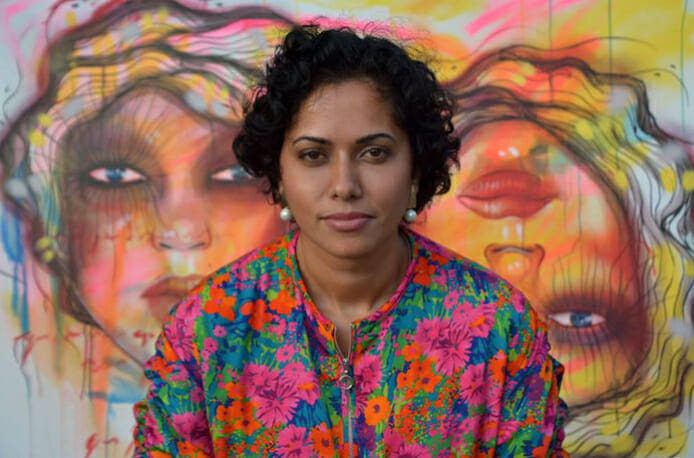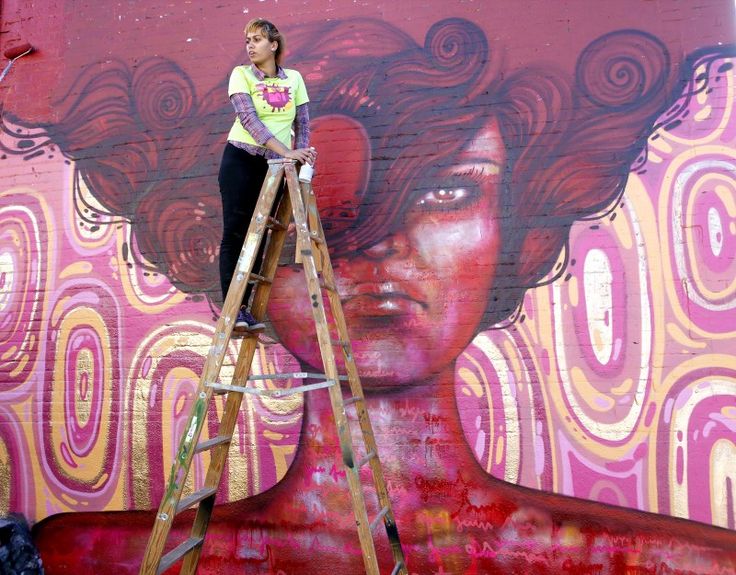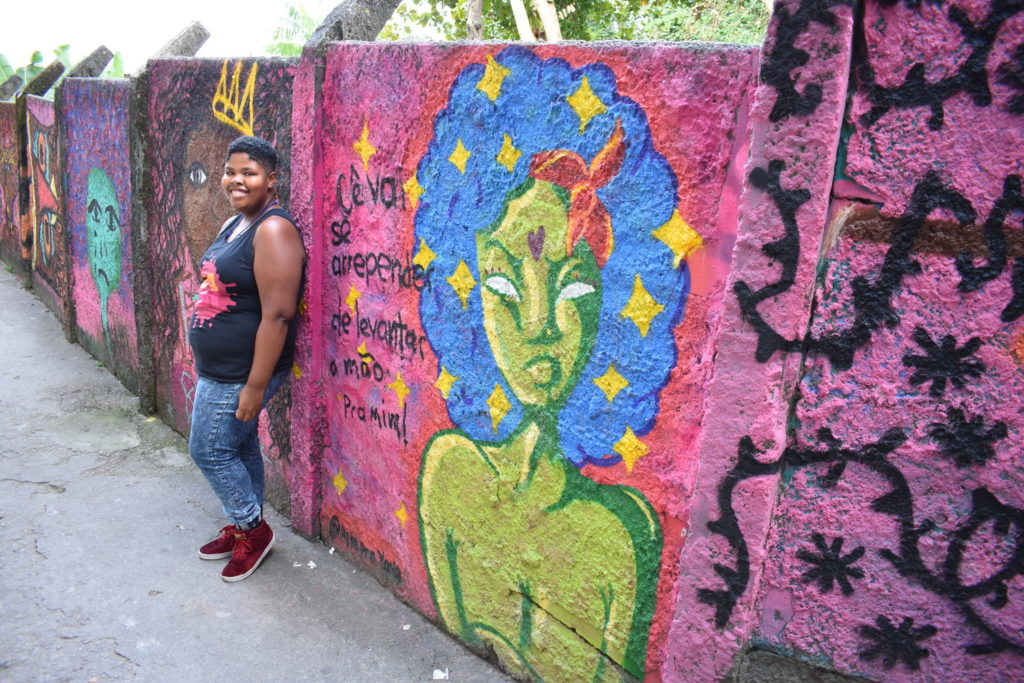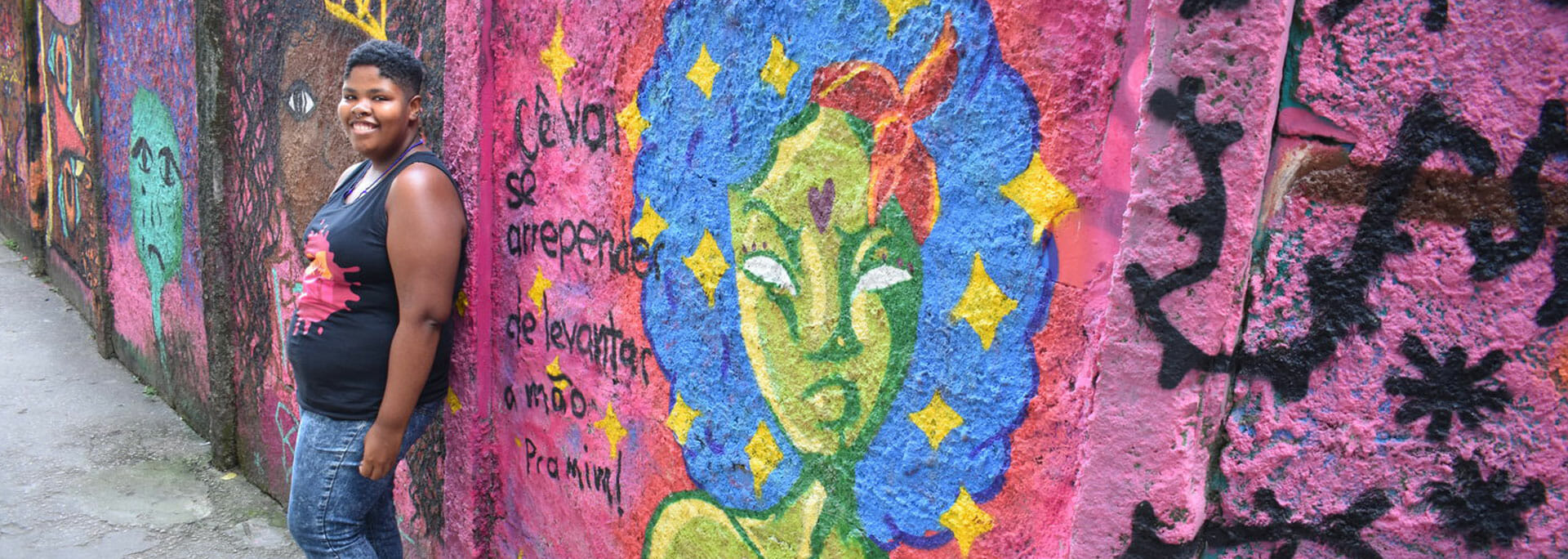
Our work aims to promote structural change in society, bringing knowledge through communication so that girls and women know how to fight for their rights and guarantee full access to the best possibilities of being in the world.
Panmela Castro - Founder and President of Rede NAMI - Brazil
2021 WE Empower Finalist, Latin America and Caribbean
Fighting for gender equality to create a society free from violence towards women, Panmela Castro and the team of NAMI Network use art for cultural transformation through promoting women’s rights. Providing over 9,000 women with access to art education and financial independence, Castro creatively spreads information and laws about women’s rights to combat domestic violence.
Panmela Castro Arte e Cultura and Rede Nami
After experiencing domestic violence firsthand in 2004, Panmela and her family went to the police yet nothing happened as domestic violence laws at the time were considered of a lesser degree. In 2006 the Maria de Penha Law was passed that created special domestic violence courts and greater penalties for such crimes, which is one of Castro’s main messages she delivers through her urban art. The mission of Castro’s artwork and education workshops is to “multiply women’s empowerment over their rights through urban arts.”
Graffiti with a Purpose
Through creating graffiti murals across the urban landscape of cities, these artworks reach women from all walks of life and show them in the most beautiful and artistic manners that they are not alone. Their voices are heard. According to the Ministry of Health, in Brazil, every 4 minutes a woman is assaulted, which is a devastating fact that highlights the importance of SDG 5 of reaching Gender Equality and Empowerment. Panmela’s art and those of the women who work with the NAMI Network empower women to take action against domestic violence and these masterpieces also spread the news of the Maria de Penha Law. Simply advertising the law only states that there are protections for women, yet Panmela’s work captures the viewer’s attention by, as she states, “using art to communicate in a playful and easy to understand manner.”

Leaders of a Cultural Shift
The message spread through the stunning pieces of art gives women access to not only information about domestic violence laws, but also centers and places of support for women. UN SDG 4 of Quality Education marks a key part of the NAMI Network’s work - “Rede Nami, which holds workshops and educational programs in the arts to a network of more than 10,000 women ''. Providing women with information, resources, and education creates leaders of cultural change within communities through empowering both women and men to change their views and actions about domestic violence. Women’s voices are meant to be heard and supported, but without access to proper education and resources many are discouraged from speaking up, yet Rede NAMI transforms their story into one of empowerment and strength.
Opportunities for All
The lack of education and opportunities leaves marginalized women, often those of Afro-Brazilian backgrounds, with limited economic endeavors and leadership positions. Combating this inequality, in alignment with UN SDG 10 (Reduced Inequalities), Panmela’s organization works with women who are from the bottom of the social pyramid and who consequently have more difficulties for access to fair education. AfroGrafiteiras is a program within Rede Nami that offers workshops and tools for black women to combat negative media stereotypes through art that depicts their thoughts and lives to the people. The opportunity to tell their stories and gain access to further education, allows these women to pursue their dreams and attain leadership positions that were previously unavailable to them.

In the face of the challenges that women entrepreneurs experience, Panmela transformed not only her life but the lives of thousands of other women. We can all create a positive impact that empowers women, reduces inequalities, provides opportunities and much more through striving to contribute to the UN SDGs, a powerhouse of global change.
“We demand respect for women’s rights and the end of gender oppression.”
Panmela Castro
by Ella Schneider
